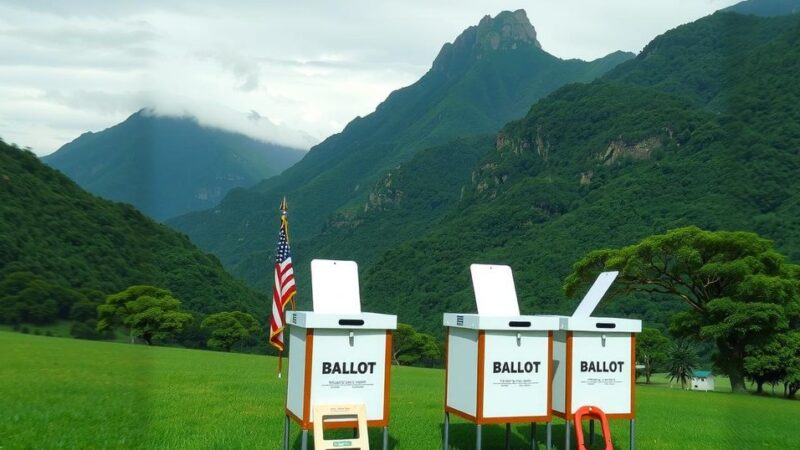Venezuelan Ambassador to Bolivia, César Trompiz, engaged with a North American delegation, discussing various topics ranging from the country’s communes, agricultural independence, and recent elections to U.S. military threats and international relations. He emphasized Venezuela’s transition towards self-sustainability and its strong ties with Bolivia and China, while expressing concerns about U.S. sanctions and migration issues.
During a recent visit to Bolivia by a North American delegation, members had the opportunity to engage with César Trompiz, the Venezuelan Ambassador to Bolivia. The meeting took place at the Plaza Hugo Chávez within the embassy grounds, which also features a cultural center. Ambassador Trompiz dedicated nearly two hours to an interactive session, opting for a question-and-answer format over a formal presentation, allowing attendees to explore topics of interest freely.
Ambassador Trompiz, who has a background as a professor at the Bolivarian School for Universities, discussed the evolution of Venezuelan communes, emphasizing their initial growth fueled by oil revenue. He detailed the transition to a self-sustaining model in response to economic challenges, stating, “Not everything turned out well,” but highlighted progress through social legislation that bolstered fishing and farming sectors.
In addressing Venezuela’s agricultural advancements, Ambassador Trompiz remarked on the country’s shift from reliance on foreign technology to fostering independence in food production. He noted a significant reduction in dependency on imports, stating, “Ten years ago, Venezuela imported 80% of what we consumed. Now we create 90% of what we consume.”
The ambassador also responded to questions regarding the legitimacy of recent Venezuelan elections. He expressed disappointment over reactions from Latin American leaders, asserting that their involvement in Venezuelan politics lacked wisdom. He remarked, “Lula knifed us in the back,” critiquing the inconsistent positions of various governments.
Relations between Venezuela and Bolivia were described as “exceptional,” linking historical figures Bolívar and Sucre to the contemporary partnership. He underscored investment opportunities between the nations and anticipated an upcoming visit by President Maduro to Bolivia.
Addressing military threats, Ambassador Trompiz pointed to U.S. sanctions as acts of warfare that have resulted in significant loss of life. He referenced Donald Trump’s escalation of military threats against Venezuela, emphasizing a preparedness to defend against such aggression, stating, “If the U.S. touches our country, they will not take one drop of our oil.”
Discussing international relations, he explained Venezuela’s growing partnership with China, emphasizing a lack of interference in domestic affairs and the pragmatic nature of their economic relationship. Furthermore, he addressed BRICS, signaling a divergence from Brazil’s policies that are perceived as hostile.
With regard to Venezuelan emigration, Ambassador Trompiz clarified that economic migration has been exaggerated, with many returning home. He pointed to efforts made by the Venezuelan government to facilitate the repatriation of citizens.
In concluding the meeting, the ambassador condemned U.S. policies that exacerbate migration issues, labeling them as alarming. He highlighted the potential repercussions for U.S. labor shortages arising from immigration restrictions. As discussions wrapped up, the group expressed gratitude to Ambassador Trompiz for his insights and perspectives.
In summary, the discussion with Ambassador César Trompiz provided valuable insights into Venezuela’s political, economic, and agricultural landscape amid ongoing challenges. Highlights included the transition of communes towards self-sustainability, the robust agricultural developments enhancing food security, and the complexities of international relations involving the U.S., Bolivia, and China. Moreover, the ambassador’s commentary on emigration and U.S. policies presented a concerning view of the socio-economic pressures facing both Venezuela and its citizens abroad.
Original Source: www.peoplesworld.org






